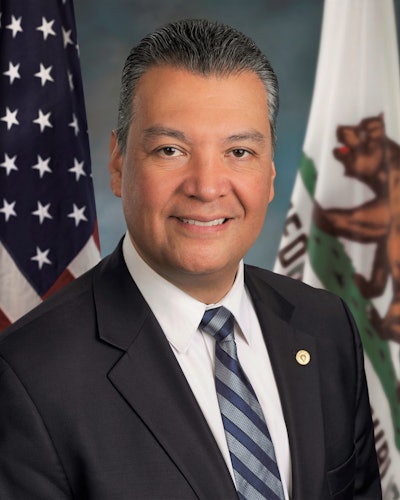 Senator Alex Padilla
Senator Alex Padilla
The Protecting Our Students by Terminating Graduate Rates that Add to Debt (POST GRAD) Act would allow graduate students to receive Federal Direct Subsidized Loans without accruing interest while enrolled, mirroring the treatment of undergraduate borrowers.
Graduate students lost access to subsidized loans in 2012 under the Budget Control Act of 2011, ending an 18-year period during which they could borrow federal funds without accumulating interest during their studies. The change has particularly impacted students pursuing careers in public service fields that require advanced degrees but offer modest starting salaries.
"We should be doing everything we can to encourage students to enter these fields, rather than creating additional barriers to higher education," Chu said in announcing the legislation.
The bill comes as Republicans have moved to eliminate the Grad PLUS loan program entirely through recent reconciliation legislation. Grad PLUS loans currently serve more than 1.6 million borrowers nationwide, representing $91 billion in outstanding debt.
California alone has nearly 57,000 Grad PLUS borrowers, according to the National Association of Independent Colleges and Universities.
The legislation has garnered support from 18 higher education and professional organizations, including the American Psychological Association, National Education Association, and the University of California System. Arthur C. Evans Jr., CEO of the American Psychological Association, said the bill would help address workforce shortages in psychology, where "shortages of qualified, culturally competent providers persist."
Many essential professions—including mental health clinicians, school administrators, nurse practitioners, and physical therapists—require graduate degrees but do not guarantee high earning potential upon graduation. Interest rates on graduate loans have reached their highest levels since 2006, adding to the financial burden.
Padilla pointed to the legislation's importance for expanding educational opportunities in low-income communities, noting that graduate students "help fuel our economy, filling workforce shortages in critical sectors like health care, education, and STEM."
The bill would also prevent graduate and professional students experiencing economic hardship from accruing interest on subsidized loans during deferment periods.
The legislation is cosponsored by Senators Cory Booker (D-N.J.), Tammy Duckworth (D-Ill.), Andy Kim (D-N.J.), Chris Van Hollen (D-Md.), and Ron Wyden (D-Ore.).
Advocates add that the push for graduate loan reform is part of broader Democratic efforts to address higher education affordability, as student debt continues to impact career choices and economic mobility, particularly for students from underrepresented communities seeking to enter public service professions.




















